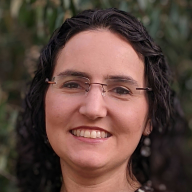
Deena Englander
Bio
Participation3
I help organizations run effectively through operations coaching, workflow optimization, and talent development. I gain a lot of personal satisfaction from making other people's work lives more productive, satisfying, and under control. On a personal note, I'm a mom with 4 kids juggling life, work, family, and community involvement.
How I can help others
Anything nonprofit operations related! I love providing guidance where I can, and support through our programming where relevant.
Posts 40
Comments34
I totally agree, based on the information you've provided. I'm happy to chat about the right career path for you if you'd like!
The typical growth of an operations specialist from an associate to more senior usually involves more responsibility and oversight. The trajectory starts off very micro, and over time shifts slowly into more macro positions, overseeing others who are doing the micro work. But, if need be, they're capable of doing the micro work as well. The experience climbing the operations career ladder means that they've been in all the more junior roles, so they have the skills and know how to delegate and oversee those beneath them. The highest form of this is overseeing all the operations to actualize the mission of the organization. The chain usually goes from ops associate -> ops manager -> ops director -> COO, with each level becoming more macro and having more oversight.
Regarding the Chief of Staff position, that is one title that can mean almost anything... it's so ambiguous that I try to stay away from it myself. I think it was potentially intended to be instead of "HR director", and now that people are trying to avoid using the term HR, they use Chief of Staff instead. To me, a true Chief of Staff is responsible for overseeing all things people - HR, benefits, payroll, hiring, firing, performance management and mentoring. What it's actually become varies greatly from org to org; sometimes it's a glorified executive assistant, and sometimes it's an unacknowledged COO or operations manager. I'm not really sure why people like to stick the label of "Chief of Staff" on almost anything... maybe it sounds more exciting to potential candidates? In those scenarios, it might be an ops role in disguise.
Would you agree with that?
Thank you! We're enjoying her :)
There's nothing stopping clients from going straight to EASE - that's part of why we make it publicly available: we want people to have easy access to qualified professionals. However, there are a few scenarios in which we can help:
- They're not exactly sure what type of service they need, what to ask for, and what to expect from the engagement; I often find people asking for one thing when they really need another. We'll help them navigate that.
- There are multiple service providers and they're not sure who to choose
- We do have relationships with many more service providers - the ones on EASE are just the ones that have worked with EA clients before and are familiar (or part of) the space
So that's why we make the matchmaking service free. It's an easy way to provide value and make sure orgs get the right support.
I do hope that over time, we'll have enough trust from the community that our opinion will matter!
For any partners who work at similar organizations, their arrangement with their employers is their own affair; if they're working full time there, they're doing other work on the side (although I believe that the majority of the professionals have their own businesses).
Looking at this from a systemic perspective, I wonder how we can prevent this situation from happening again. To clarify, the situation I refer to is intense criticism presented without consideration of the facts that requires significant resources to be directed towards defense in order to maintain credibility.
Writing and responding to discrediting posts consumes a lot of resources that counterfactually could have been used for more impactful purposes.
Additionally, it creates a lot of fear - I can only imagine the distress this situation caused Kat and NL. It takes a lot of personal strength and conviction to stand up to such negativity, and I fear that this kind of whistleblowing is more likely to push people away from doing the hard job of being a nonprofit entrepreneur.
I'd love to hear any suggestions about how to prevent this from happening again.
I completely agree with this. I've seen many worse scenarios play out in other organizations due to unprofessionalism, mostly due to lack of experience and the tendency to bootstrap and work in startup mode. While that approach is helpful in some cases, it causes a lot of dysfunction across many organizations and I'd like to see more efforts put into instituting professional norms within EA organizations. This is only a well publicized event - there are many worse ones that I've witnessed that aren't highlighted here. But that brings up another point that a few other commenters mentioned - are we creating an environment that: A) encourages the "move fast and break things" lack of professionalism approach But then: B) condemns them for making mistakes It seems to me that we cannot believe both. Either we supposed the first approach and accept that mistakes will be made, or we do not tolerate mistakes, but then discourage unprofessionalism. That, it seems to me, is the systemic issue surrounding this particular one.

I think you're totally on target with your thought - being an effective operator is very different than being an effective entrepreneur. They need each other. I personally always think operations and efficiency should be a part of the conversation (not just in growth mode), but by design needs to involve someone other than the entrepreneur to implement it.